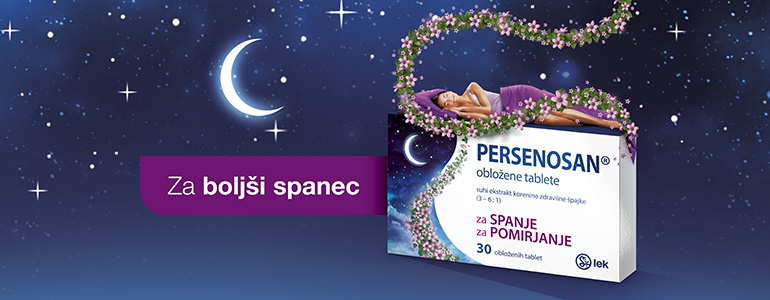
Insomnia is the most common sleep disorder in the general population and is an important public health problem.1 We have many over-the-counter products on the market to alleviate sleep problems. They are mostly of plant origin, but only selected products have the status of medicine.
WHAT IS INSOMNIA AND WHERE DOES IT LEAD?
Insomnia is a problem that impairs the quality of life of many people. Insomnia symptoms affect about 30 - 40% of adults, and in 7% to 22% of individuals, insomnia is expressed to such an extent that we can speak of a clinically significant disorder. Without proper treatment, insomnia often has a chronic course and is associated with the risk of various mental and physical disorders and a reduced quality of life of the affected individual.
The forms of insomnia are precisely defined in the International Classification of Sleep Disorders, the most common of these is psychophysiological insomnia. We talk about chronic insomnia when a patient has problems at least 3 times a week for a total of at least 3 months. However, fewer people suffer from the chronic form of insomnia than from the acute form.
CONSEQUENCES OF SLEEP PROBLEMS
• slowing of cognitive processes, reduced attention and coordination of movement
• changes in the functioning of bodily processes: metabolism, secretion of hormones and the immune system Appropriate identification and treatment of the disorder is therefore necessary.
In the treatment of insomnia, non-pharmacological methods are gaining ground today, with the help of which we try to influence the psychological mechanisms that usually maintain insomnia. Among them, first-line therapy is cognitive-behavioral therapy for chronic insomnia
HOW DO WE DEAL WITH SLEEPING PROBLEMS?
• non-pharmacological measures:
& minus; sleep hygiene
& minus; cognitive-behavioral therapy
& minus; appropriate sports and physical activity
& minus; customized sleep ergonomics
• pharmacological measures if we have not been successful with non-pharmacological:
& minus; herbal medicines can be used in adults and adolescents over 12 years of age (eg valerian root)
& minus; in the case of severe sleep problems or in the ineffectiveness of previous measures, short-term treatment of acute forms of insomnia in adults is used according to the guidelines. nonbenzodiazepine hypnotic (prescription medicine)
INSOMNIA AND VALDRIAN AS A HELP FROM NATURE
Insomnia can also be caused by stress, so many medications used for insomnia are the same as those used to relieve stress. The same is true for herbal medicines. Such effects are most studied in valerian (medicinal spiders, Valeriana officinalis).
Valerian is the only medicinal plant with a sedative effect, in which the effects are proven by high-quality clinical research to include the European Medicines Agency in the group of medicines with well-established medical use.
The effect of valerian extracts prepared with 40 to 70% ethanol has been the most researched in clinical trials. They are used to relieve mild agitation, tension and sleep disorders. for easier falling asleep and help with sleep.
A large number of clinical studies unequivocally prove the hypnotic effect of valerian. On the other hand, despite a large number of pharmacological studies, the exact mechanism of action and individual substances in valerian are still unknown. The clinical effect appears to be due to the synergistic action of several substances acting by multiple mechanisms on the GABA-ergic system in the brain.
VALDRIAN IN A MEDICINE OR NUTRITIONAL SUPPLEMENT?
Products from the same medicinal plant may have the status of a medicine and others the status of a dietary supplement.
For products with the status of a medicinal product, the legislation specifies how the method of production and internal and external quality control ensure that, despite the mentioned variability, all batches of the medicinal product are effective throughout the shelf life.





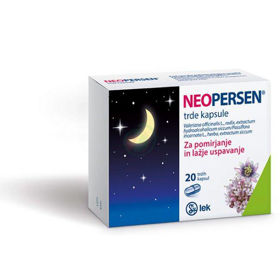
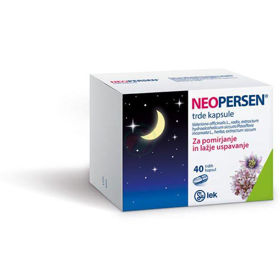
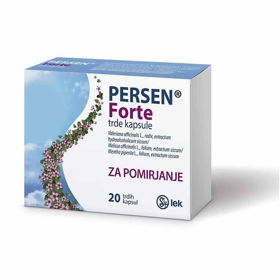
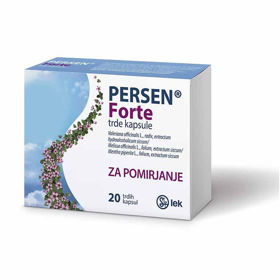

 Facebook
Facebook
 Instagram
Instagram
 info@moja-lekarna.com
info@moja-lekarna.com

